Latest posts by Michael Gerber (see all)
- From Faith Current: “The Sacred Ordinary: St. Peter’s Church Hall” - May 1, 2023
- A brief (?) hiatus - April 22, 2023
- Something Happened - March 6, 2023
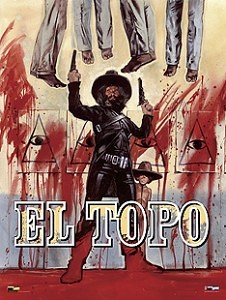
El Topo poster by Graham Humphreys.
Reading this post on “El Topo” at BoingBoing.com made me recall that I read somewhere it was John Lennon’s favorite movie. Anybody ever seen it? Should I seek it out? I have an insatiable desire to watch pre-1980 movies, especially foreign ones, but I have a low tolerance for symbolism (Bresson’s “Au Hasard Balthazar,” for example, left me cold…well, the humans did. The donkey was superb). Opinions?
Here’s the movie’s page on Rotten Tomatoes—surprisingly positive for an underground flick, right?
Here’s the trailer…
While researching this post, I ran across this post, which contains a few amusing details of life with the Lennons at Tittenhurst…



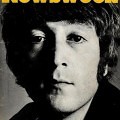


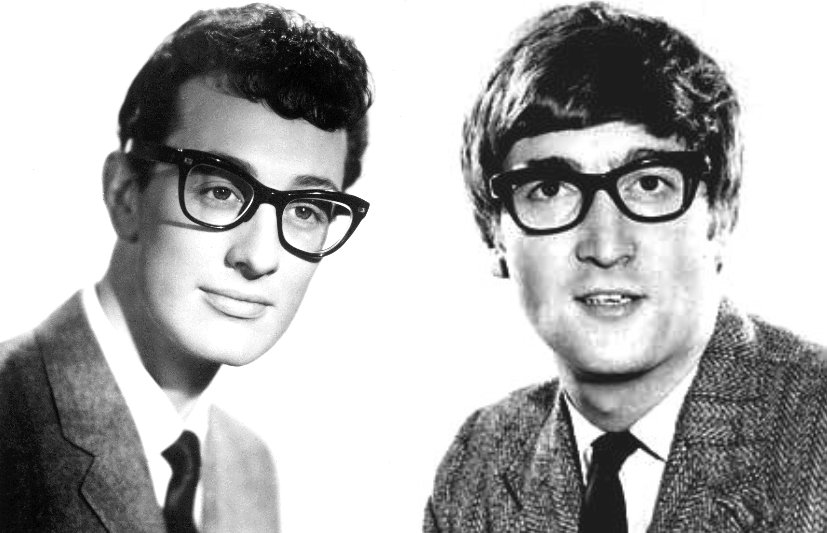

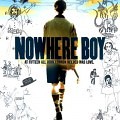


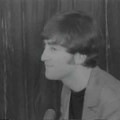
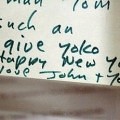
Never even heard of this! I used to consider myself somewhat knowledgable about older movies, foreign and domestic, but not anymore! If John love it that’s good enough for me, I shall see if I can find it.
By the way, has anyone here been watching the current season of Mad Men? I’m not hear to tell you how great the show is and that you should watch it (even though you should), but I am here to tell you that the Beatles music has played a part in this seasons stoeylines. A few episodes ago, ‘Tomorrow Never Knows’ played through the ending scene and the credits. The song was so essential that Mad Men paid $250k to use it and the creator (Matthew Weiner) said he would have completely changed the episode around if he couldn’t gain the rights from Apple.
But here’s where it gets really interesting. As someone who’s watched every episode of this show from season 1 onwards, I began to suspect that the Beatles music was becoming important to the show this year. And then I was alerted to this:
http://yinews.wordpress.com/2012/05/04/sgt-don-drapers-lonely-hearts-club-band/
This woman makes the case that this entire season is a companion to Sgt. Peppers Lonely Hearts Club Band. She makes some great observations and connections between the album and season 5 of Mad Men. It’s exquisetly detailed and left me feeling that she actually may be right. If you don’t watch the show, you still might be interested to check it out. If you do watch, let me know your thoughts!
I’d have to hear more about this low tolerance for symbolism to know for certain, but that makes it sound like you might not automatically be interested in topo, or any other films by jodorowsky. like the Klein and johnandyoko-financed holy mountain, topo is non-narrative, driven primarily by metaphor, and not always easy to follow, particularly if you’re unused to watching films without a clear narrative structure. it isn’t paracinema like the Warhol-influenced art films by the aforementioned duo, though–it has a plot, character development, etc.
if this sounds a bit rehearsed, that’s because it is. I’m used to shelling out these types of disclaimers to Beatle-related audiences when discussing things decidedly less centrist than the Beatles themselves. (unsurprisingly, this occurs most often when discussing Yoko, who seems more to be tolerated rather than understood even in the best of those scenarios.) but in this case, I really think you could handle topo, despite any difficulties you may have with overt symbolism (?). it’s an amazing piece of work, and even though holy mountain is likely one of my favorite films of all time, I will readily admit that topo is probably better. it’s certainly the more accessible of the two, with just one rather than both feet in the metaphysical plane that holy mountain lives on.
give it a shot. in a worst case scenario, you’ll be merely intrigued and given a bit of insight into JL as a person to boot.
I’ve not seen The Holy Mountain, but I’ve seen El Topo a couple of times and have it on DVD (albeit in a bad multi-generation VHS transfer). First read about it being a J&Y fave in the Hoberman-Rosenbaum Midnight Movies, a marvelous cultural-aesthetic history of underground film and cult faves. It told of how John convinced Allen Klein to purchase American distribution rights, hence its release under the ABKCO banner.
In brutal reduction, Topo is the odyssey through a brutal desert landscape of a gunfighter turned circus performer turned mystic. He meets freaks and fatties, dwarves and killer lesbians. In the first 20 minutes alone, there’s castration and mass anal rape. If you’re shockable, you’ll be shocked; if you’re disgustable, you’ll be disgusted; if you’re the kind who responds with “Oh, gimme a break,” you’ll do that.
Can’t say I like the film, but there are images and passages that have never left my mind, if only because of their sordid frankness. Part of what compels my memory back is that you could say, again in brutal reduction, that the film is a hallucinogenic distillation of Bunuel and Leone, who happen to be two of my favorite directors: at the least, you have Leone’s taciturn killer, plug-ugly villains, parched landscapes, and quick-draw gunfights; and Bunuel’s anti-clericalism and foot fetish.
Mike, you would probably hate El Topo. It is avant-garde up the snout and to the heels. It is not interested in straight communication. It is full of symbols and crackpot mysticism and greasy, grisly spectacle for its own transgressive sake. But being the PSOB (perverse son of a bitch) that I am, all those things are likely to make me more interested in a movie, not less, so I would say, for perversity’s sake, check it out.
I have been watching Mad Men since it began. Their use of “Tomorrow Never Knows” to end a recent episode was absolutely astonishing. Not just to hear that song’s fluttering, cawing cacophony against the upholstered lives of these familiar characters, but for the brutal way Don Draper ripped the needle from the record, the second he realized he didn’t understand America anymore. And then, after a black screen and the very definition of a pregnant pause, credits resumed and the song roared back, louder than before, Lennon intoning, birds shrieking, the noise as unstoppable, inexorable, shapely and chaotic as the rolling weight of time and change. It was worth every penny Weiner had to spend on it.
I also noticed that, unlike every other end-credit song used on Mad Men, “Tomorrow” was allowed to play through to the close of credits, rather than being cut off midway to make way for teaser clips from next week’s show.
I might surprise you, Devin–after all, my all-time favorite film director is Federico Fellini. On the other hand, Satyricon is the only movie of his I don’t like, and this is after reading and liking Petronius’ book. Fellini plus Roman history–two of my great passions–would seem to be a slam-dunk for me. I also love Leone, so I’m torn. That’s what El Topo looks like to me, one of those baked, bleached-out Leone Westerns.
But I’m afraid it’s going to be boring. Having grown up bohemian in the 70s, I don’t get much of a charge out of pretend transgression. I once watched Pasolini’s “Saló,” and I can’t remember a thing about it. On the other hand, “In the Realm of the Senses” has stuck with me, because there’s a story there.
My issue with avant garde anything is how it is fundamentally reactive, and thus sneakily supportive of all the things that it’s trying to tear down. The underlying mental patterns remain in place; and that’s why, for all the ink that gets spilled, it doesn’t really change anything but style. I’m not interested in gurus, or showing Aunt Mimi she can’t boss me around, but REAL freedom and individuality. And once you have that, a million haircuts will bloom–but they won’t be the point.
But I seem to have gotten off the track a bit!
Oh, boring? It is that, as odysseys often are. And up to the individual to decide if the jaunt was worth it.
As with anything, there’s good avant-garde and bad avant-garde, and A-G that’s genuinely shocking in the sense of being deeply, mysteriously upsetting to people’s guts (The Rites of Spring, Performance), and A-G that is, as you say, mainly a formal game, a style-changer (much of postmodern fiction). El Topo has too much of the former and not enough of the latter to be so easily forgotten. But what I’m remembering and why, I can’t quite say. Can’t quite nail it down: which is maybe one thing the avant-garde is good for, gets you away from the certitudes of mainstream entertainment that enable you to say you were moved or scared or simply bored by a movie, without any unresolved feelings escaping those categories to trouble your memories. If you come across something that leaves you troubled, chances are it has something of the avant-garde in it, even if the mainstream finds it acceptable (David Lynch, for instance, or the White Album).
Salo: an interesting double feature with El Topo, if one could take it. I wouldn’t make great claims for either one, but I wouldn’t say either was pretend, if by “pretend” you mean fake or posed. They are what they are by birth, contemptibly or regrettably so.
This probably should be continued on our other blog, People Who Argue About Gross and Violent Foreign Movies Maybe a Little Too Much.
I would still like to read something about exactly WHY John Lennon was so taken with Topo. Intuitively, I don’t get it.
Devin, I’m glad you mentioned “Hey Pier Paolo.” That blog of ours doesn’t get nearly the traffic it deserves. 🙂
[procrastination follows; no need to read, unless you’re procrastinating, too]
I’m not arguing against A-G material–I’m glad it exists–but I usually find it is lacking in craft. A-G artists who demonstrate mastery of conventional craft, I have no beef with. But most A-G today–be it art, music, or comedy–is produced by people who haven’t had time to do anything like that; and so we, the audience, have to winnow through masses of half-digested stuff, led by an explaining priesthood whose existence relies on a miraculously replenishing supply of supposed young genius. It’s hype, not art.
This is one of the biggest flaws of post-60s pop culture, and The Beatles are part of the founding myth. Because The Beatles learned their craft in secret (in Hamburg), outside of the capital, and were lower-class, it was too easy for people to think it was pure talent; inborn, not learned. It reflects the same nasty class assumptions that you here about black athletes in this country. But The Beatles broke hip new ground at 25 because at 20 they were beavering away at the squarest form of all: show tunes.
Craft is not arbitrary; it is used because it works. It communicates efficiently. To get difficult/personal ideas across, one has to be more committed to craft, more disciplined, more precise, not less. For example, if Fellini wanted to express MORE unadulterated dream-imagery in Satyricon, the story had to be stronger, more compelling, more “grabby” than a conventional movie, not less. It worked in 8 1/2 because we had all of Fellini’s bio to help us fill in the gaps; that personalizes the story, gives it stakes, makes us care. In Satyricon, it’s simply a diary of his acid trips, dreams, and Jungian psychoanalysis–half-baked, not ready for an audience.
As to the troubling feeling you speak of, that’s an interesting point which I will have to think on more. One need go no farther than Mad Men to see that attraction in action. But I would say that what is troubling you isn’t necessarily an important thought, an insight or primal image calling to your subconscious; it could be merely a sense of expected forms being broken. Mad Men is drawing on an immense bank of expectations we all have for TV drama. You see the empty elevator shaft, and…uh-oh. It’s almost a limbic thing. But it’s just a trick, like the verite opening of Taxman. This doesn’t make it better, more nuanced, more important, or more lifelike–and it’s only our saturation in media, an unreal, commerical, and somewhat arbitrary form, that makes it seem so.
I have, it is great, made in Mexico, my country by Alejandro Jodorowsky, it is bloody, it is symbolical, it is rude and anoying. Lennon supported it a big deal, its soundtrack was released by Apple, recently ABCKO released a DVD and a full set of Jodorowsky films in great quality packaging. I’ve seen it many times but I hardly can stand seen it in a seat. The book about the film by Jodorowsky explain every single frame, it is marvelous. Jodorowsky signed my LP in 2002, he is alive and well, reportedly about to make his first film in ages!
Michael and Devin,
Thanks for responding – it’s good to see both of you are watching Mad Men as well. Did either of you check out the link I provided about season 5 Mad Men and Sgt. Peppers? I know it sounds ridiculous (and it probably is) but she just makes so many good points and connections. For example she singles out pieces of MM dialogue and it matches up extremely closely if not exactly to a Pepper song. Look, there’s probably a 90% chance she’s seeing something from nothing, but there’s always that 10% chance that she’s right. The fact that Weiner used $250k out of his minimal budget to get TNK and the fact that he told us he would have changed the whole episode had he not cleared the rights tells us something. The Beatles are totally on this guys mind with regards to this show. I’m curious to hear your thoughts – even if it’s a complete takedown of this theory!
Craig, just want to say thanks for the link to Don Draper’s Lonely Hearts Club Band. Haven’t digested it yet, but it’s a fascinating idea.
And it’s always nice to know there are other close-reading obsessives out there!
You’re welcome, Nancy! I’m glad you enjoyed it. It’s almost too detailed because it can turn you off from reading it when you first see how long it is. By the way, there is 3 additional MM/Pepper wrap-ups after the one I linked to. Let me know your thoughts Nancy I’d love to see what you think.
I find the subject of John Lennon (and Beatle) likes and dislikes endlessly fascinating. Early in their career, the lads had their “winner/loser” game, where they’d consider various things (like coke or pepsi for example) then assign them “winner” or “loser” status.
I find I habitually think of Lennon’s likes and dislikes strictly in the realm of music, forgetting that he always watched movies, tv, read books, etc. For example, May Pang revealed that Lennon became obsessed with Hunter Thompson’s “Fear & Loathing In Los Vegas” book.
George Harrison is responsible for the wonderful “Withnal & I” film. And as another commenter said, without Lennon’s enthusiasm, Jodorowsky wouldn’t have gotten the distribution he deserved.
As interesting as I find the Beatles’ thoughts on music, I find their non-musical favorites equally interesting. What tv shows did Lennon watch during his Dakota days? What was his reaction to the Rutles? I heard him on a talk show say he loved the Marx brothers, but did he know that Groucho praised the “Hard Days Night” film?
– Hologram Sam
Hologram, re Lennon and The Rutles, I seem to recall hearing Neil Innes talk about walking down the street in NYC the year after All You Need Is Cash, and seeing John Lennon coming in the other direction. “Oh God! The famous Lennon teardown is coming, surely? What do I do?”
As he passed, Lennon didn’t make any sign, only singing softly, “C-H-E-E-S-E-A-N-D….”
Love that guy. So damn smart and funny.
I had no idea Lennon was obsessed with Fear and Loathing in Las Vegas. I wonder if it had anything to do with this passage:
The radio was screaming: “Power to the People — Right On!” John Lennon’s political song, ten years too late. “That poor fool should have stayed where he was,” said my attorney. “Punks like that just get in the way when they try to be serious.”
The attorney quoted is the infamous Oscar Zeta Acosta, aka Dr. Gonzo, played by Benicio del Toro in the movie.
Wow, Devin–what a great grab!
Lennon’s love of “Fear and Loathing” is why (the disappeared) Acosta makes a cameo in “Life After Death for Beginners.” All dearly departed fragile fascinating ones end up passing through Brigadoon…
Agh, yes! I forgot you referred to Oscar in LADFB. A fascinatin’ figure, that one.
Devin, if you remembered that, I’d be a little concerned about you. 🙂 Only brought it up because I loaded the book with Easter eggs like that ‘un.
As I recall, May Pang said Lennon was thinking of a movie version of Fear And Loathing In Las Vegas, with himself in the starring role.
Years later, in his “Skywriting” book, Lennon refers to “Hunter (Fear And Loathing For Money) Thompson”
– Hologram Sam
Ah! Could it be that HST asked Lennon for too much money for the rights? Lennon constantly bitched that “people always screw the rich guy.”
[world’s smallest violin]
[going from table-to-table, playing “I Am The Walrus”]
El Topo, Holy Mountain and all Jodorowsky Movies are fully remastered and available on DVD and Blue Ray, El Topo is a Mexican Movie, made in the late 60s but it was made widely available after Lennon, Klein and Apple Support. The Soundtrack is marvelous.